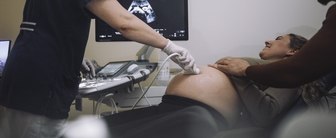A new YouGov survey examines how Americans are feeling about consumer DNA tests. These tests involve a person taking a sample of their DNA — often in their saliva — and mailing it into a company for analysis of their ethnicity, health, and other factors. About one in five Americans have ever taken one of these tests, and many have found surprising information about their family history as a result. The survey also finds that many Americans have concerns about privacy and the hypothetical use of their DNA sample by law enforcement.
One in five Americans (21%) has taken a DNA test; those 65 and older (28%) are slightly more likely than younger adults to have done so.
37% say a family member has taken a DNA test, including 27% who say someone in their immediate family other than themselves has taken one and 15% who say someone in their extended family has taken one. 43% of Americans have either taken a DNA test, had a family member take one, or both, including 25% who either have taken one or have an immediate family member who has.
Among people who have taken a DNA test or have an immediate family member who has taken one, 25% say the test results uncovered close relatives they previously didn’t know about. 16% say the results changed the way they think about their own racial or ethnic identity. One-third (33%) say there was a result that surprised them. The survey invited people with a surprise result to write about those surprises in their own words. Responses to the question, “What surprised you?” include:
- “My dad isn’t my biological father.”
- “My sister was not my full sibling.”
- “My brother had a child the family didn’t know about.”
- “I have either a son or a nephew.”
- “Cousins married to each other.”
- "That I didn’t have any native DNA — my mom always said we were Indians.”
- “I was surprised at how diverse my background was considering I had been told I was 100% my race.”
- “The results periodically change drastically. I went from 38 percent Scottish to only 3 percent, for example.”
Why might someone choose to take a DNA test? Among people who have taken one or are interested in doing so, the most popular reason — among options provided in the survey — is to learn about ancestry and heritage (59%). Other reasons that many people say they have taken or would take a DNA test are curiosity (54%), to trace family history or lineage (54%), to learn about health risks or genetic traits (41%), and to connect with family members (22%).
Majorities of Americans would want to take a DNA test if they were faced with the possibility of learning some difficult information. 73% would want to take a DNA test if it meant they learned they have a high likelihood of developing a serious health condition — an increase since February 2022, when 65% said they would. 71% would want to take a DNA test if it meant they would learn they had a biological sibling they’d never met, up from 62% who said this in February 2022. 63% would want to take one if it meant they would learn they were adopted. 61% would want to take a DNA test if the results showed they were not biologically related to their father, and 60% would want to take one if it meant they would find out they were not biologically related to their mother.
9% of Americans say they know a great deal about their family’s ancestry or heritage. Those over 65 (15%) are especially likely to say this. 15% of Americans say they know a lot about their family’s ancestry or heritage, 32% know a moderate amount, 32% know a little, and 10% know nothing at all.
In general, Americans want more knowledge of their family history than they say they possess. 31% say they would like to know a great deal about their family’s ancestry or heritage, 24% would like to know a lot, 28% would like to know a moderate amount, 9% would like to know a little, and 4% would prefer to know none of their family’s ancestry or heritage.
About one in five Americans (22%) believe they definitely (7%) or probably (14%) have an ancestor who was an important historical figure or royalty. Black (40%) and Hispanic (34%) Americans are more likely than white Americans (16%) to believe this.
Among Americans who are somewhat, not very, or not at all interested in taking a DNA test, the most popular reason to avoid the tests — among the ones included in the survey — is privacy concerns (42%). 36% say they’re not interested because of distrust of companies handling DNA data, 34% say they simply have no interest or perceived need, and 33% say the tests are too expensive.
Worries about the privacy of DNA tests are shared by many Americans: 30% say privacy is very much a concern in their decision of whether to take a DNA test — up from 25% who said this in February 2022 — and 29% say it’s somewhat a concern.
Americans are divided on whether law enforcement should be able to access the records of DNA test companies to assist in solving crimes. 27% think law enforcement should be able to do so for all crimes. 34% think law enforcement should be able to access this data only when it concerns violent crimes. 20% don’t think law enforcement officials should be able to access this data. Black Americans (27%) are more likely than Hispanic Americans (19%) or white Americans (19%) to say law enforcement shouldn’t be able to access this data.
Should Americans be able to opt out of having their DNA test results shared with law enforcement? 29% of Americans say yes, in all circumstances. 32% say yes, except for those being investigated for a crime. 19% say no.
44% of Americans say they would be willing to share their DNA test results if law enforcement asked for them in order to prove a distant relative was guilty of a violent crime. 24% would not. Black Americans (32%) are more likely than White Americans (23%) or Hispanic Americans (21%) to say they wouldn't be willing to share the results.
Related:
- Half oppose DNA sampling by police
- DNA tests: Many Americans report surprises and new connections
- Which Americans do Irish and Italian people say can describe themselves as Irish and Italians?
See the results for this YouGov survey
— Carl Bialik and Taylor Orth contributed to this article
Methodology: This article includes results from an online survey conducted January 3 - 9, 2025 among 1,164 U.S. adult citizens. Respondents were selected from YouGov’s opt-in panel to be representative of adult U.S. citizens. The sample was weighted according to gender, age, race, education, 2024 presidential vote, 2020 election turnout and presidential vote, baseline party identification, and current voter registration status. 2024 presidential vote, at time of weighting, was estimated to be 48% Harris and 50% Trump. Demographic weighting targets come from the 2019 American Community Survey. Baseline party identification is the respondent’s most recent answer given around November 8, 2024, and is weighted to the estimated distribution at that time (31% Democratic, 32% Republican). The margin of error for the overall sample is approximately 4%.
Image: Getty (Yuichiro Chino)
What do you think about American politics and everything else? Have your say, join the YouGov panel, and get paid to share your thoughts. Sign up here.











